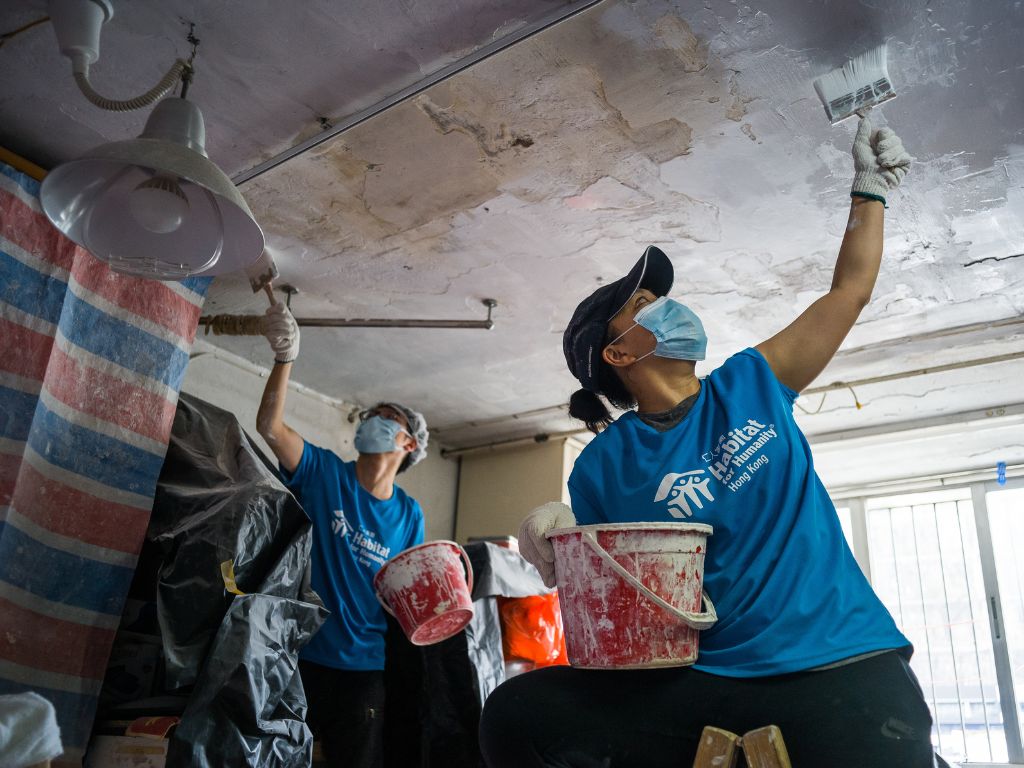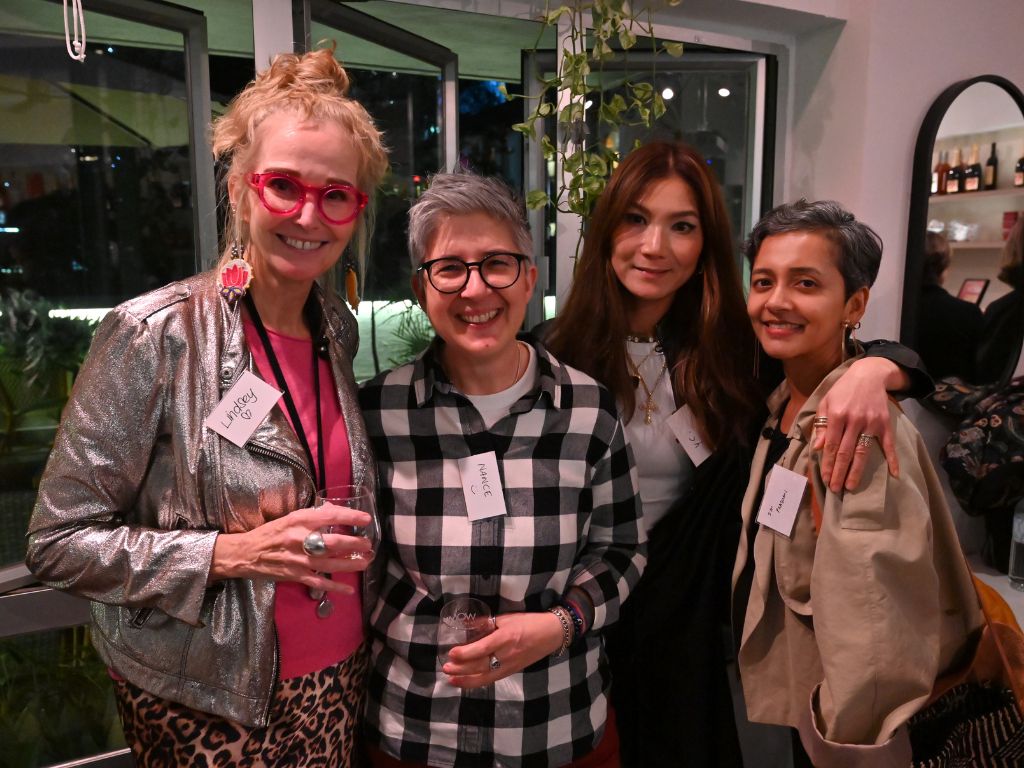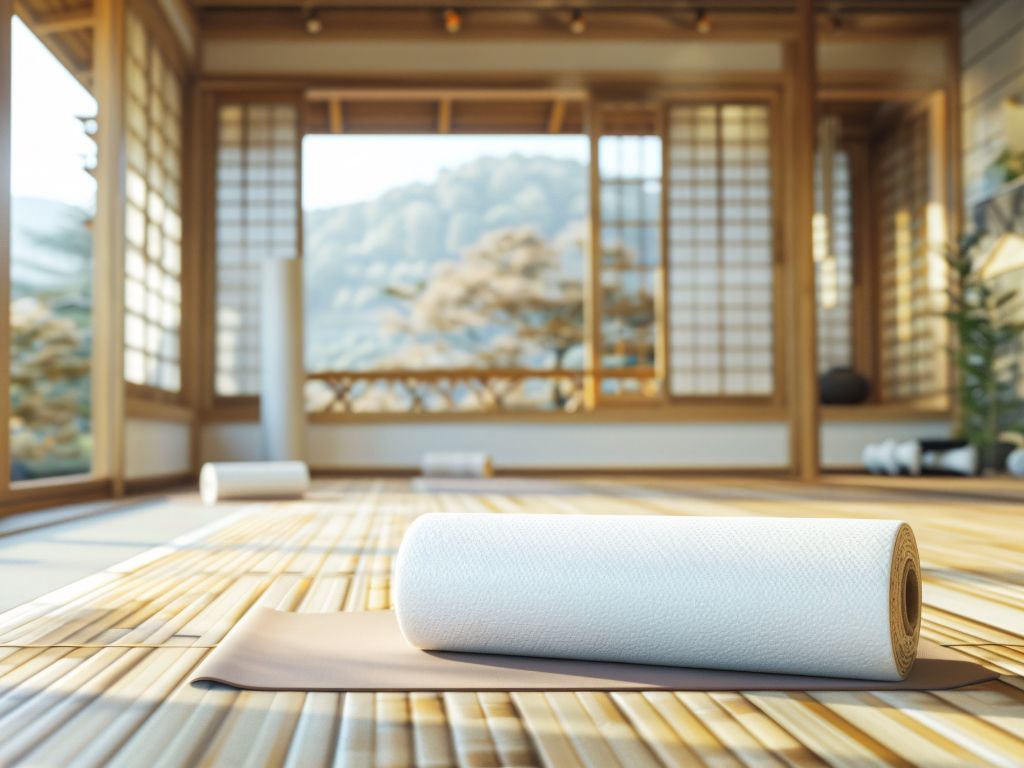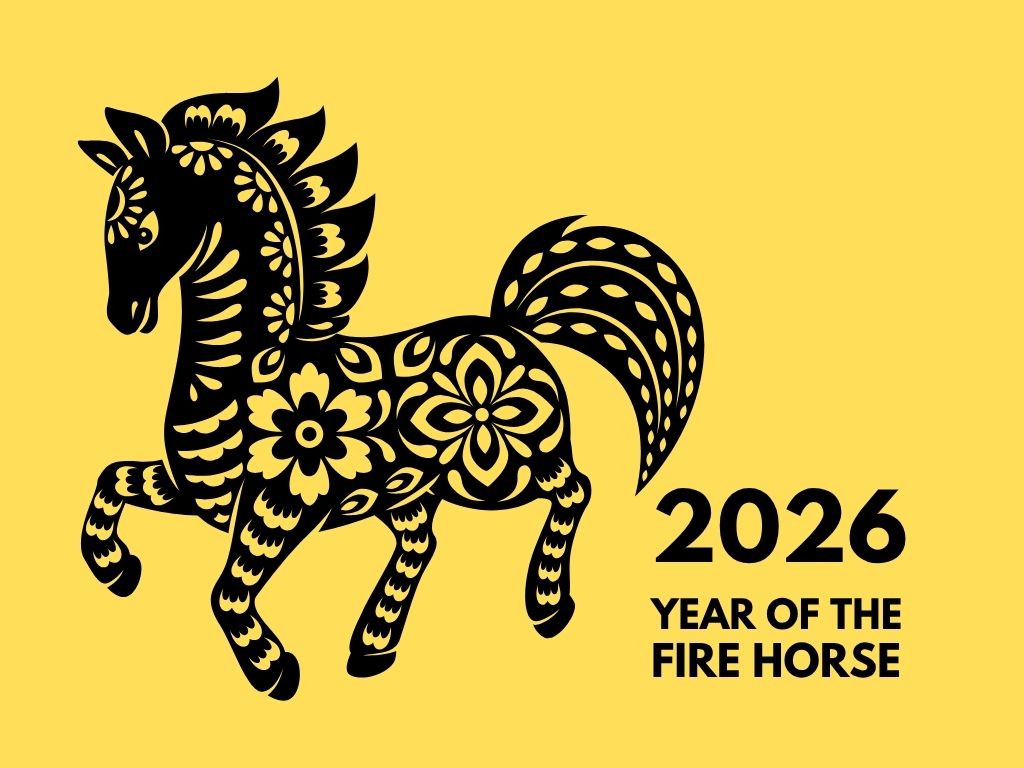Homing in on Housing
Being Neighbourly x Jo Hayes, Habitat For Humanity
- Author/ Being Neighbourly
Share

Hong Kong’s severe land scarcity, high property prices, and aging housing stock present significant challenges, says Jo Hayes, CEO of Habitat for Humanity, for the charity’s goal of improving lives through home renovations, community partnerships and advocacy for better housing policies.
Established in 2004, the Hong Kong branch was driven by the global vision of Habitat for Humanity International, founded in 1976 in the US, to ensure everyone has a decent place to live. The Hong Kong chapter was set up to tackle the acute housing challenges in Hong Kong, “one of the world’s most expensive property markets, where systemic inequities exacerbate housing unaffordability,” explains Hayes.
According to the CEO, many low-income families, elderly individuals, and vulnerable communities live in substandard or unsafe conditions in Hong Kong. She says that due to limited space and complex regulatory requirements, creating affordable housing solutions is difficult; and that raising sufficient funding and mobilizing public support in a fast-paced urban environment can be challenging.
Yet, for all of the difficulties, Habitat for Humanity Hong Kong has strategised several programmes to address the diverse housing needs of each vulnerable group it has identified — including low-income families, older adults and women.

At the heart of their local efforts is ‘Project Home Works’, their longest-running volunteer engagement programme, which provides essential cleaning, repairs and renovation services to those living in inadequate conditions in public rental housing.
Last year, one fortunate recipient was 72-year-old Ms. Chu, who suffers from a severe eye disease. She had applied for a guide dog for mobility, safety and companionship. However, her application was unsuccessful due to the disorganization and clutter in her 200 ft. home. After this decision, her social worker referred her to Habitat for Humanity for help de-cluttering.
With the support of 30 volunteers and six domestic helpers over three service days, three-times decluttering and cleaning, there was a tangible improvement to the space, its cleanliness and safety situation. Ms. Chu can now shower regularly, cook light meals, and walk in her apartment without risking a fall.
“For those suffering from mental health issues, it is especially difficult to adapt to big changes in living environment,” says Hayes, adding that they saw a huge shift in Ms. Chu’s mental health when she participated in the decluttering process and was able to throw away some of her old things.
“She told us that without our help, she could never have found her way back to a ‘normal’ life or gained the confidence needed to apply for a guide dog.”
“Our services are about more than tidying up, they’re about providing our beneficiaries with the support necessary to find the strength within themselves to improve and maintain their living conditions.”
Since launch, Hayes shares that Habitat for Humanity HK has improved nearly 3,000 homes, supporting low-income households — particularly older adults like Ms. Chu and people with disabilities — to live in safer, healthier environments.
Building on this foundation, the CEO shares that their ‘Ageing-in-Place’ initiative supports older adults who wish to remain safely and independently in their homes. “Through free home safety assessments and tailored modifications — such as grab bars, anti-slip flooring, and improved lighting — we help reduce fall risks and promote comfort, dignity and independence in later life.”


Meanwhile, the charity’s Subdivided Unit (SDU) programme supports individuals and families living in overcrowded and often unsafe subdivided flats.
“In alignment with the government’s upcoming Basic Housing Unit (BHU) regulatory regime, we offer direct services including relocation support, housing improvements, legal advice, and workshops on hygiene, fire safety, and pest control — easing the transition for affected residents and improving their long-term housing prospects.”
Meanwhile, this year, their ‘Women Build’ programme is expanding into a year-round initiative to foster deeper community connections and address the housing challenges faced by women-led households.
“With new legislation impacting SDUs, the programme will focus on supporting single mothers and their children living in substandard conditions. Through temporary housing, relocation assistance, and essential support services, ‘Women Build’ aims to provide a pathway toward more stable, secure living environments.”
While housing remains their core mission, Hayes shares that Habitat for Humanity also promotes youth engagement through ‘Project School Works’, a volunteer-driven initiative that revitalises schools across Hong Kong.
“By transforming over 70 learning environments through mural painting and classroom improvements, we inspire community spirit and raise awareness of housing and inclusion among students and educators.”
The organisation has contributed to improving learning environments, revitalising more than 70 local primary and secondary schools and benefiting over 53,000 students through mural painting and light refurbishment projects that promote inclusion and community pride.
“Together, these programmes form a holistic approach to tackling Hong Kong’s housing crisis — creating meaningful, lasting impact one home, one family, and one community at a time.”

Since its inception, Habitat for Humanity Hong Kong has made a meaningful and measurable impact on the lives of numerous low-income and vulnerable families across the city. By improving the safety and sanitation of more than 2,800 homes, the organisation has helped elderly individuals, persons with disabilities, and families living in substandard housing gain access to healthier and more dignified living conditions.
The charity has also built a strong culture of volunteerism and civic engagement, mobilising over 16,154 volunteers, who have contributed more than 81,178 hours in service to the local community — including hands-on home repairs, community outreach, and awareness campaigns. This includes delivering 9,264 home hygiene kits to protect vulnerable households and support safe, clean living environments during Covid.
“Engaging volunteers effectively is crucial for the success of organizations. We engage volunteers through partnerships with schools, universities, corporations and community groups, as well as through public outreach and events. Volunteers are essential to our mission—they help with hands-on home repairs and renovations, including painting, cleaning, and improving accessibility for elderly and low-income families. Those with professional skills may also support in areas like construction, safety, or design. Beyond build projects, volunteers assist with fundraising, community events and advocacy. By offering meaningful, purpose-driven experiences, we create a strong community of support dedicated to improving housing conditions in Hong Kong.”
According to Hayes, companies can also offer in-kind donations or professional services such as materials, logistics or legal support. These partnerships go beyond charity—they are impactful collaborations that help us build safer homes and a more inclusive Hong Kong.
“In the coming years, Habitat for Humanity Hong Kong aims to expand the reach and impact of our work,” says Hayes, adding that they will strengthen partnerships with NGOs, government, and the private sector to ensure sustainable, community-based solutions.
“Advocacy will also be a key focus, as we work to raise awareness of housing inequality and support policies that promote affordable, accessible homes. In addition, we hope to empower youth and volunteers through education and leadership programs, building a more inclusive and compassionate Hong Kong for all.”
What is the best thing about the work that you do?

“The best thing about our work at Habitat for Humanity Hong Kong is witnessing the transformative power of safe, decent housing on individuals and communities,” says Jo Hayes, CEO of Habitat for Humanity.
“Every time we help a vulnerable family improve their living conditions—whether through renovations, disaster recovery, or advocacy—we’re not just building structures; we’re restoring hope, dignity, and stability.”
“Knowing that a child has a clean, secure space to study or that an elderly person can now live in a safer environment brings a deep sense of purpose to our work. It’s especially rewarding to see volunteers and partners from all walks of life come together to serve a shared mission. The collaboration, compassion, and real-life impact we create fuel our passion daily. We’re not just building homes—we’re building stronger communities and a more inclusive Hong Kong. That’s what makes our work so meaningful.”
Habitat For Humanity
The Hive Lai Chi Kok, 13/F, Liberal Factory Building, No.3 Wing Ming Street, Cheung Sha Wan.
- +852 2530 3379
- [email protected]
- www.habitat.org.hk
Share
About the Author

Being Neighbourly
For over 20 years, the people behind BN have been creating content on the best things in life: food, travel and inspirational people.
Hong Kong Shark Foundation
www.hksharkfoundation.org
New Stories
Stay Up To Date
Want the latest insights and fresh content delivered straight to your inbox? Subscribe to our newsletter and stay updated with our exclusive content!












